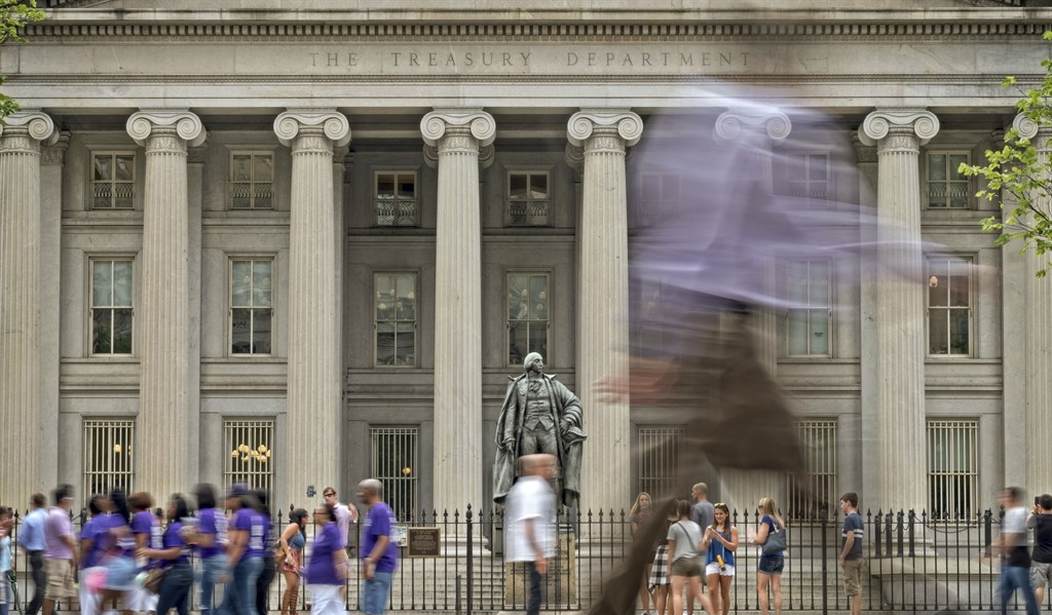Former GOP Speaker of the House Paul Ryan calls it the “most predictable crisis we’ve ever had.” Jamie Dimon, Chairman of JP Morgan, says Washington is facing a global market “rebellion” because of its spiraling national debt. "The Black Swan" author Nassim Taleb says the economy is in a “death spiral,” while Fed chairman Jerome Powell said last week it’s past time to have an “adult conversation” about fiscal responsibility.
Unless you've been hiding under a rock or living in a cave that doesn't get internet, you probably know that the United States has a huge national debt. And time is growing short — indeed, it already may be too late — to do something about our $34 trillion debt without exacting a fearfully painful price for survival when the debt bomb blows up.
It's simple math: the longer we wait to address the problem, the larger the price we pay to fix it. And we're fast approaching the point where the cost of staving off disaster will be too much to bear and the political will to do so won't be there.
The national debt is a topic of conversation in Washington again following the release of a report from the Congressional Budget Office (CBO) which showed the U.S. will add an astonishing $19 trillion in debt over the next decade. The growing costs of an aging population and higher interest rates adding to the nation's debt-servicing are bringing us closer to a day of reckoning.
From 2024 to 2034, the United States will spend more than $12 trillion alone on interest costs. Starting next year, net interest costs will be larger as a share of the U.S. economy than at any time since the federal government started keeping records in 1940, according to the budget office.
Spending on safety net programs such as Social Security and Medicare continues to grow even as their trust funds face the prospect of being depleted in the next 10 years.
“Also boosting deficits are two underlying trends: the aging of the population and growth in federal health care costs per beneficiary,” CBO Director Philip Swagel said. “Those trends put upward pressure on mandatory spending.”
About 63% of the federal budget is devoted to entitlements, including Medicare, Social Security, Medicaid, and other social safety net programs. When you take out defense spending, just 6% of the federal budget is non-entitlement, non-defense spending.
Obviously, to make any progress on getting federal spending under control, something has to be done about mandatory entitlement spending. But they don't call Social Security/Medicare the "Third Rail of American Politics" for nothing. Touching those programs to change them in any way is a political death sentence.
Democrats are not going to give up the most effective political club they have just to address a crisis. Even when it becomes obvious that the only way to fix the debt crisis is by slashing benefits for Social Security or raising premiums for Medicare, Democrats will balk.
Related: Democrats May Try a Parliamentary Gimmick to Pass Ukraine-Israel Funding Bill
So the debt will continue to grow. And in a decade or so, paying interest on the national debt will become the number one line item in the federal budget.
The CBO projects that between 2024 and 2034, public debt will balloon to $48 trillion and the annual budget deficit will grow from $1.6 trillion to $2.6 trillion. (In fiscal year 2019, the deficit was $984 billion.) According to the report, the deficit as a percentage of gross domestic product (GDP) will grow to 6.1 percent in 2025—a figure that, since the Great Depression, has only been exceeded during times of crisis: “during and shortly after World War II, the 2007–2009 financial crisis, and the coronavirus pandemic.” By 2034, public debt will reflect a larger portion of the economy, 116 percent of GDP, than at any point in American history, leapfrogging the record high of 106 percent during World War II. Extending the projections out an additional 20 years shows that the debt-to-GDP ratio would be 172 percent in 2054.
Is anyone listening? Does anyone care? I will be dead in 10 years but if you're under 50 years old, you are going to see the end of the United States of America unless there are radical changes undertaken to get control of the budget and create a long-term plan to deal with our massive national debt.
To do that requires political courage that is nowhere to be found in Washington.










